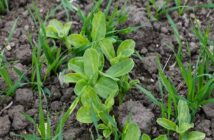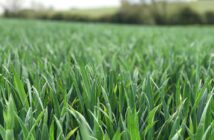As part of its continued development and expansion, KWS UK has opened a new £0.5m laboratory at its Thriplow HQ near Cambridge.
The facility will enable the company’s plant breeders to test up to 50 thousand developmental lines every year and speed the selection of the best new varieties for UK farmers.
According to KWS UK, Research Director and Global Wheat Breeding Lead, Prof Chris Tapsell, the laboratory will primarily undertake quality tests on early generation material.
“It will help us analyse the quality of promising experimental wheats and will be a local source for the production of double haploid lines to speed up the breeding programmes.
“By linking these to the molecular marker information we collect in our laboratories in Germany, we will be better placed to fast-track material,” he says.
Prof Tapsell pointed out that KWS’s wheat breeding activities are growing globally and the winter and spring wheat breeding, pre-breeding and research teams are creating an increasing number of market leading varieties.
“Fundamental to the success of this are the support functions in plant pathology, molecular markers, genomics, bioinformatics, and in this specific context, quality analysis and wheat double haploid technologies.
“So, with the growing success of our UK business we have invested in UK facilities, re-developing the site at Thriplow and this has involved the opening of a dedicated, ‘state of the art’ new research laboratory,” he said.
“We expect it will ensure greater efficiency in our activities and further strengthen the support required for our breeding programmes. This will help us to bring even better new varieties to the market to meet the new challenges growers now face.”
KWS UK Managing Director Andrew Newby said that the new laboratory will also help the business identify key commercial traits for the end-user.
“We have strengthened early collaboration between our commercial and breeding teams and this facility also will help us to speed up the development of better varieties to benefit all in the supply chain,” he said.
“Our aim is to bring varieties onto farm with as much added-value as possible and the key is to identify, select and fast-track material that is more attractive to the buyer and end-user.”
Last harvest around one in every three UK wheat fields and every second winter barley field were down to a KWS variety.
The new lab will also be used for quality analyses of barley and oilseed rape as part of KWS’s other breeding activities in the UK.



